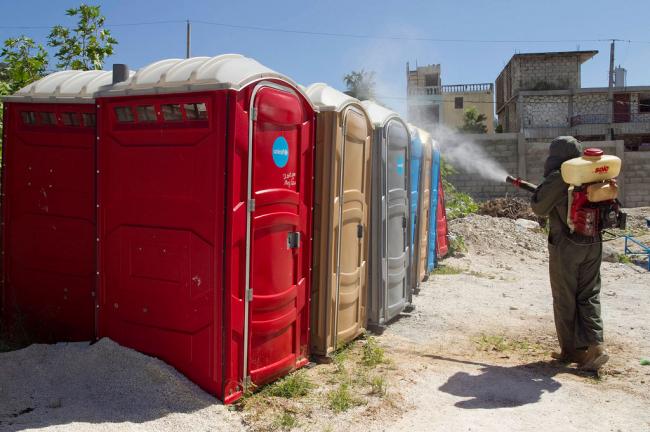
Zika virus: UN agencies step up response measures following declaration of public health emergency
According to the World Health Organization (WHO), the Zika virus has spread rapidly and has so far been detected in 25 countries, with a surge in cases of microcephaly particularly in northeastern Brazil. The protocol for diagnosing it starts with measuring the head of a newborn at least one day after birth to see if it is below a certain level. The disease could be responsible for a number of problems, from convulsions to learning disabilities.
At a press briefing at UN headquarters in Geneva, Dr. Antony Costello, the Director of Maternal, Child and Adolescent Health at WHO, said there are currently two main challenges being tackled.
“One is that Zika virus […] we don’t have a commercially available diagnostic test, and further, the test that we do have only detects the virus when it’s active, let’s say during a period of I think five days,” he explained, noting that this means many women could have been exposed to Zika virus and it may not be clear whether they’ve had the infection or not.
“The second problem is that microcephaly is not an absolutely simple diagnosis to make,” he added. At the moment there are nearly 4,200 cases reported as suspect from Brazil but a significant proportion of those cases could be discarded if linked to other causes.
Dr. Costello also informed reporters that a global response unit has been set up, bringing together all people across WHO in Headquarters and in the regions, to prepare a formal response using the lessons learned during the Ebola crisis.
Meanwhile, the UN Children’s Fund (UNICEF) is working with governments to mobilize communities to protect themselves from infection.
“Although there is still no conclusive evidence of the causal link between microcephaly and the Zika virus, there is enough concern to warrant immediate action,” said Dr. Heather Papowitz, UNICEF’s Senior Advisor for Health Emergencies, in a press release.
“We need to act fast to provide women and pregnant mothers with the information they need to protect themselves and their babies, and we need to engage with communities on how to stop the mosquito that is carrying and transmitting this virus.”
According to the agency, simple measures that can help keep people safe include using insect repellent, covering as much of the body as possible with long, light-coloured clothing, removing places where mosquitoes can breed, and putting screens on windows and doors. Pregnant women who think they have been exposed to the virus should seek care by a trained health provider.
While the surge in microcephaly has so far only been reported in Brazil, UNICEF is also scaling up its support to other countries in the region and stands ready to support national governments as needed – using its network of 24 offices serving 35 countries and territories.
It is also launching a nearly $9 million appeal for its programmes to limit the spread of the virus and mitigate its impact on newborns and their families across the region.
Turning to how the Zika virus could affect travel, the UN World Tourism Organization (UNWTO) recalled in a press release that according to WHO there should be no restrictions on travel with the affected areas.
The agency stressed that travellers to areas with Zika virus transmission should be provided with up to date advice on potential risks and appropriate measures to reduce the possibility of exposure to mosquito bites. It also said standard WHO recommendations regarding disinfection of aircraft and airports should be implemented.
Photo: UN/MINUSTAH/Logan Abassi
Support Our Journalism
We cannot do without you.. your contribution supports unbiased journalism
IBNS is not driven by any ism- not wokeism, not racism, not skewed secularism, not hyper right-wing or left liberal ideals, nor by any hardline religious beliefs or hyper nationalism. We want to serve you good old objective news, as they are. We do not judge or preach. We let people decide for themselves. We only try to present factual and well-sourced news.







